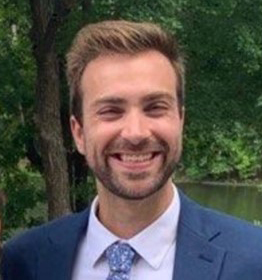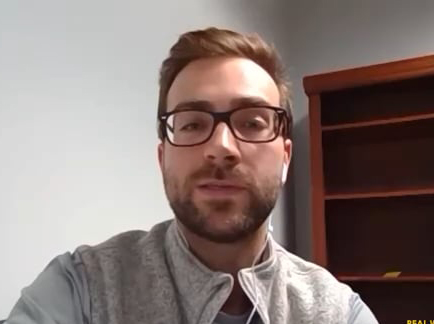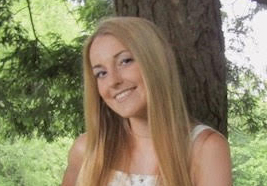SA grad working on improving cancer treatments

2010 Shaler Area graduate Cody McHale
April 27, 2021
Throughout the past number of years, a growing emphasis has been placed on cancer research, as new and innovative techniques have come into play that are adding to progress on understanding this morbid disease. There are more than 100 known types of cancer that affect people every single day. Many of these patients will undergo surgery and chemotherapy to treat their symptoms and hopefully fight off the cancer in their body. Unfortunately, there is no single cure for cancer; a fact which plagues millions of mourning families. Shaler Area graduate, Cody McHale, PhD, is a tumor immunologist who conducts cancer research with a team everyday with a goal to discover better treatment for cancer patients.
McHale describes the science behind his research, “We’re really learning how cancer manifests where you have a shift in the balance between the growth of tumor cells and the balance of immune control, and so we see clinical manifestation of cancer and actual growth of tumors where the rate at which cancer cells grow kind of out paces the rate at which the immune system can really keep them in check. So, we’re really learning that it’s this evolutionary arms race between the immune cells and tumor cells.”
This type of scientific research and analysis may seem like a challenge, but for McHale and his team, it inspires them and drives them towards finding the solution. McHale is involved in a robust research group including a molecular biologist, pediatric oncologist, chemist, and biochemist. Each has their own perspective that can come into play and target their research at different angles.
“I would say it’s really kind of a group effort to attack from all angles and to develop a new effective cancer therapy. That’s always the goal we keep in sight. It’s our driving force behind what we do.”
McHale leads a busy life that is mostly consumed with his job, “I get up at like 6:45, have some coffee, then drive right to the hospital. I usually start work at about 7:45. Today for instance, I spend about half my day actually in the lab, at the bench doing science. I was growing some macrophages, which are an immune cell subtype, and we are planning to treat them with a small molecule inhibitor that one of our chemists designed. Then, I went to Kabba for lunch. Then I came back and had two or three lab meetings, caught up on some emails, cleaned up the lab, and left at about 5:30 (but my day is usually 7:45-6:00). I go to the gym. If it’s nice out, maybe get a little golf in. Then, I cook dinner and do it all over again.”
McHale lives in Charlotte, North Carolina. After graduating from Shaler Area High School in 2010, he attended the University of South Carolina for 4 years to get his bachelor’s degree, then continued to pursue a medical degree and a postdoctoral, which summed up to be about a decade spent in higher education.
At Shaler Area High School, McHale felt that there were a number of classes that inspired him and had a strong influence on his education. As a “science guy,” inevitably one of his favorite high school classes was AP Biology. However, he found enlightenment in his AP English and History classes as well. “I think anytime that you’re challenged and you’re taking a stimulating class, particularly about something you’re interested in, it’s hard not to remember that, right? We try to remember things that we either really like or really hate, and anything else in between kinda goes to the back of your mind.”
By taking a variety of different classes in college and high school, McHale obviously does not use everything he learned everyday. However, this shaped him into the intellectual he is today. “There are certainly things you’ll learn in school that you’ll never use in real life, but being a scientist, I would say the Venn diagram of the things you learn in science class and things you learn in your job, it’s a flat circle. It’s not a Venn diagram, it’s totally overlapped.”

How does one achieve their dreams, move to a warm southern state, and have success? Many high school students want this for themself, and McHale tells them, “There’s thousands and probably hundreds of thousands of kids just like you who are pursuing the same dreams and so you’ve always got to do something that sets yourself apart.”
Teachers, parents, coaches, etc. tell kids this all the time, and Cody McHale is proof that this actually pays off. College and the job market are extremely competitive. “Anything you can do to build your network and add things to your resume or your skill set [will benefit you]-add new things to your tool belt.”
McHale started researching tumor immunology in his sophomore year of college. The position he currently holds is his first faculty position, but he has been involved in this career for around a decade in some shape or form.
“I think I always knew I wanted to do something scienc-y and my mom always said ‘you know you should be a doctor’ and like any young kid you’re like, ‘Oh yeah I should probably do what mom says.’ I had originally planned on going to medical school to get my MD to be a clinician, and I have a Ph.D; little different. But I always knew I wanted to be in some sort of health profession or biomedical research, and I knew I had a passion for research and basic science. When I was in undergrad, I was working as an undergraduate research assistant at a facility member lab at the School of Medicine of South Carolina and I got along really well with him and enjoyed the work.”
As a tumor immunologist, McHale conducts endless research and works tirelessly everyday. Despite this, he describes his favorite part of his job, “I like answering questions that don’t have answers yet. I like the idea of creating therapeutics or new tools for doctors to help treat patients and improve their outcomes.”
McHale’s energy and drive was easily summed up with, “I like solving problems.”
He enjoys working with his team and hopes to discover something ground-breaking some day. Thanks to people like McHale and his research groups, the innovations we see in cancer treatment are possible.


